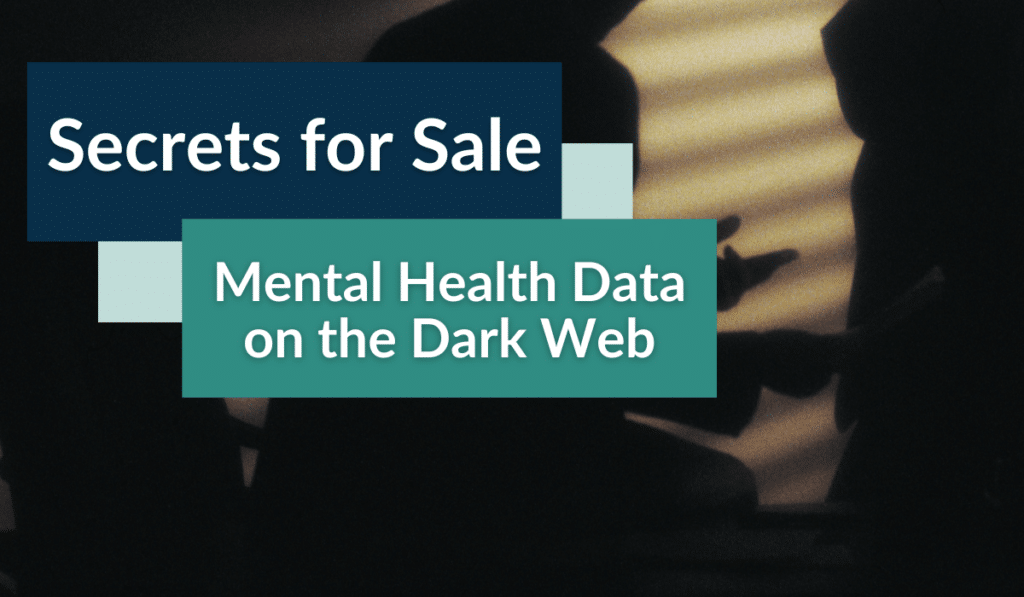Mental health is for many reasons, a deeply personal and sensitive topic. It is something that many people are not comfortable discussing with even their closest confidants. Finding a trusted professional to help navigate these waters is invaluable. Online resources that include on-demand options continue to expand. This provides individuals with new ways to access treatment that is life-changing.
With the advent of online offerings and the proliferation of digital technology, mental health data is collected in new ways. And it has become a commodity that is being sold by data brokers on the dark web. This is a concerning development and one that is raising questions about the ethics of data collection, privacy, and the role of technology in our lives.
What Are Data Brokers?
Data brokers are companies that collect, analyze, and sell data to other companies for marketing and advertising purposes. Where do they get the data? One example is your customer loyalty card from your local grocery chain. You might get discounts on groceries and gas, but the store is simultaneously collecting data. Your purchases, demographics…it’s all there for them to see how to best serve you, how to market to you. But they can also sell that data to other companies for different uses. Data brokers may facilitate this. This type of data collection happens regularly in all ways of our online lives.
Online Resources
With the pandemic, there was a rise in online mental health treatment. Companies collect that data. This includes information on people’s psychological conditions, medications, and therapy sessions. This information is then sold to third parties, including insurance companies, employers, and law enforcement agencies. This data can possibly be used to deny insurance coverage, discriminate in the workplace, and more.
The dark web, often used for illegal activities, is where information like this is sold.
The sale of mental health data on the dark web is often (if not always) done without the knowledge or consent of the individuals whose data is being sold. People are likely unaware that their information is being shared with others, potentially exposing them to discrimination or more.
The sale of mental health data on the dark web is concerning because it is often difficult to track or prevent. The anonymity of the dark web makes it challenging to hold data brokers accountable for their actions. Furthermore, the nature of the data itself makes it challenging to know when it has been sold or how it is being used.
It’s Not All Negative
The use of technology in mental health is a growing area of research and development. Many people are turning to digital tools and apps to manage their mental health conditions. However, this increased use of technology also means that more personal data is being generated and collected. New solutions are being created from the demands. As a result, it is crucial that we have robust data protection laws and regulations that are enforced.
The sale of mental health data on the dark web is a concern that needs to be addressed. It is imperative that data brokers are held accountable for their actions. And it is equally important that individuals have greater control over their data. We need to ensure that we have data protection laws and regulations in place that protect the privacy of individuals’ data. Doing this will ensure that people can manage their mental health without fear of discrimination or harm.
The post Mental Health Data for Sale appeared first on Breach Secure Now!.





